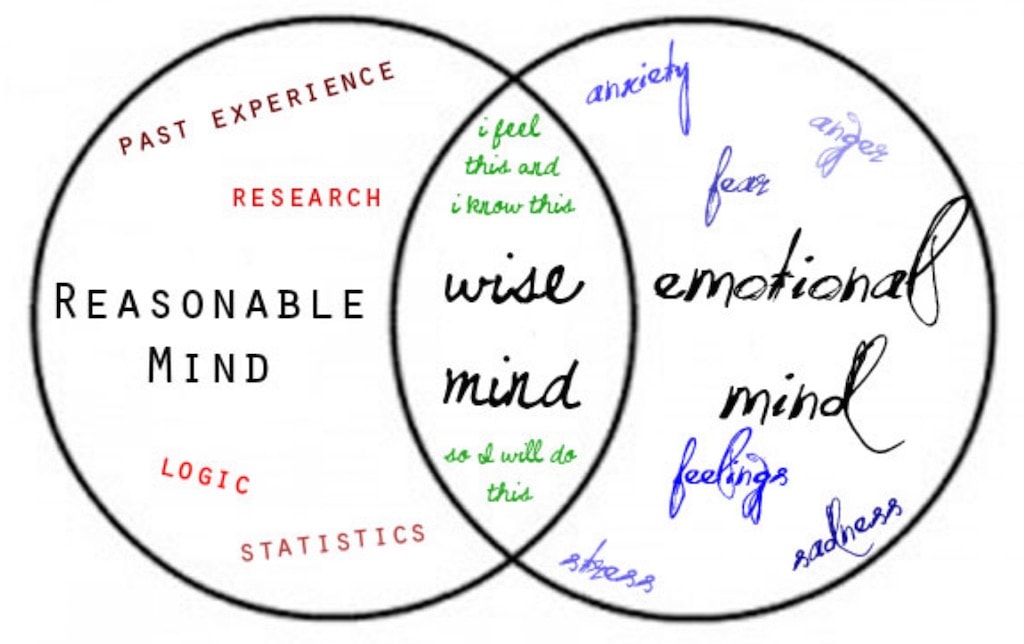
Tips & Tools
Managing your anxiety
STOP Skill

The premise behind the STOP skill is to take frequent small breaks to check in - with yourself, how you're feeling and the situation around you, before moving forward.
The Steps:
This skill involves four steps:
- Stop
- Take a deep breath
- Observe
- Proceed mindfully
So step #1 - stop 🛑. Take a moment to pause.
This leads directly into into step #2 - breathe. Take a couple deep breaths. If you want, you can try breathing in for a count of 4, holding this breath for a count of 7, and then exhale for a count of 8. Repeat again if desired.
Once you have taken a couple deep breaths, it's time to move on to step #3 - observe. Observe what’s going on around you. What's going on internally (ie. what's going on in your mind? What emotions are you experiencing?)
Now that you have taken time to consider the situation around you and how you're feeling, what would be the best way to move forward? Step #4 - proceed mindfully.
But what do we mean by mindfully?
In Dialectical Behavioral Therapy (a popular form of psychotherapy -DBT for short), they teach you about the different "states of mind", including the:
1. Rationale/Reasonable Mind
- When you approach a situation intellectually
- Thinking, planning, observing, etc.
- Ex. Telling yourself that in order to be successful for an exam, you must begin studying days or weeks in advanced
2. Emotional Mind
- Thoughts and behaviours controlled largely by emotions
- Logical thinking becomes difficult, and facts can become distorted
- Ex. Trying to prepare for an exam that's tomorrow that you haven't begun studying for yet
3. Wise Mind
- Where our emotional mind and wise mind come together (ie. overlap) - using calmness and wisdom to guide our actions
- Using intuition and listening to your body (thoughts, emotions, feelings, etc.) to know what's right
- Ex. Listening to your body to decide when is best to study, when to take breaks, how much time should you prepare, etc.

Too often when we are feeling stressed or anxious, our emotional mind wants to take control. Unfortunately, this often does not lead to the outcome we intended or desired - often acting impulsively or without much thought (if any).
What if instead, we listen to these thoughts and emotions, but use them to effectively guide our actions (ie. using our 'wise mind'). Taking the time to breathe, listen to our body, and think more clearly. Or in other words, acting mindfully instead of impulsively.
Skills such as the STOP skill can help you through times of stress to step away from an emotional mind, and into a more wise mind. So the next time you feel your emotions about to take control, remember to STOP!
To learn more about the various states of mind and another skill to help engage your wise mind, please checkout "DBT: A Wise Mind ACCEPTS"
- All
-
29 Nutrition
Nutrition
- 73 Mindfulness and Relaxation
- 27 Student Life
- 8 Exercise
- 51 Treatments & Therapies
- Anxiety Resources

Don't see what you're looking for? Send us an email!
©Copyright 2024 Cam’s Kids powered by Kids Help Phone
Not-for-Profit Organization. B/N: 921508-5
Thanks for visiting Cam's Kids. Please remember...
Cam's Kids is not a service provider.
If you are in crisis, please call 911 or go to your nearest emergency department. For free, confidential counselling, contact Good2Talk or Kids Help Phone.
Post-secondary students: find your local crisis resource here.

